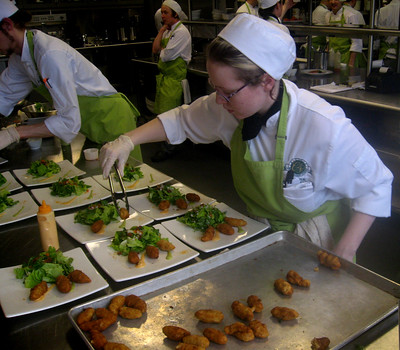Seattle Central College hasn’t had a very good year. The community college, one of eight community colleges in the Seattle College system, has been plagued by financial problems since the onset of the pandemic. At one point, speculation was rampant that Seattle Central would close its doors Seattle Central suffered staggering enrollment losses in the Fall, and the administration convened a task force to see what could be (or should be) done in response.
Full-time enrollment at Seattle Central is down by 15%. Like many community colleges, Seattle Central depended upon the extra income that international students provided. The pandemic and a hostile “America First” environment sent those students packing. Seattle Central fell victim to the Law of Unintended Consequences. Seattle Central is expected to run a deficit of $10M in the 2021-2022 fiscal year. Losses of that amount are not sustainable.
Unfortunately for Seattle Central, it has the highest housing costs for students in the area. That makes it difficult for students to choose to attend school. Besides housing, the system’s state appropriation will decline in the coming years, and other services, like bus transportation to and from campus will also be affected. So, the task force recommended cuts that landed most heavily on Seattle Central, where the losses are most profound.
To the task force’s credit, it recommended cutting the administration by 15%. (Most often, administrators have no problem identifying academic programs to cut, but they seem to overlook themselves when weighing potential reductions.) It also recommended increasing class sizes.
Breaking News! Technical education is expensive
One area that the task force eyed for cuts was the school’s technical programs, including the Seattle Culinary Academy. As it turns out, technical education is expensive. The community supported the SCA, however, and unbelievably enough, the Board listened. (At Washtenaw Community College, we don’t have a Board of Trustees that listens to the public, the students, or the staff at WCC. For some reason, they believe they were elected to provide “advice” to the WCC administration.)
Despite the cost of the program, Seattle Central will continue to offer technical classes in the fall. Instead, Seattle Central will reduce the size and cost of the school’s administration, increase class size and restructure the budget. 97% of SCA graduates get hired immediately upon graduation. The need for culinary professionals is high and supports Seattle’s tourism industry. So, cutting the area’s largest and most well-respected culinary program would be … well … stupid.
Instead of cutting academic programs, they’re going to cut the administration.
A community college is not a business
At the heart of the issue is the cost of technical education. If a community college were a business, it would be easy to make a case for cutting programs that don’t turn a profit.
But a community college is not a business. You can call it a public service, or a public investment, but it isn’t a business. The goal of a community college is to educate people, not generate a profit. Certainly, the community profits, but only when its graduates fill open positions, or create new businesses. When the administration cuts programs based on cost, they do a profound disservice to the people who pay their salaries.
The measure of the value of technical education is not how much a program costs, but rather, how much the community needs it. If the community needs the graduates, the cost to train them is largely irrelevant. If a community does not need the graduates, then, cut the program. But if the community needs the graduates, then try cutting a half-dozen Vice Presidents. Or figure out a way to reduce the energy consumption on campus by 45% (or more).
The public knows that technical education is expensive. They also know it is valuable. When it comes time to cut the college’s budget, measure the administration by how much profit or loss it generates, and then act accordingly.
Photo Credit: timogan , via Flickr
























